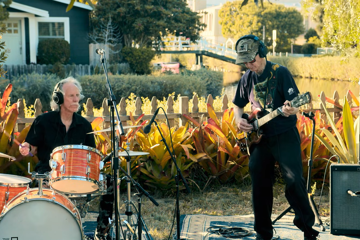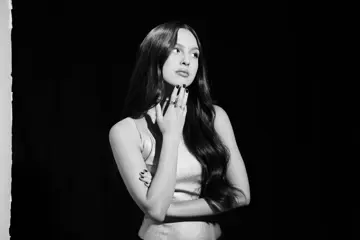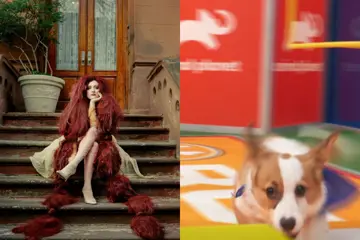Le Fevre, derived from the Latin word for craftsman, is an apt surname for this young Tasmanian storyteller. His craft is folk music, specifically, and Resonation, his second full-length, is his timely opus. An able producer, having manned the desk for both Luca Brasi and Jamie Hay's debut albums, Le Fevre has a penchant for impassioned compositions, this time though it's his own that are prime focus.
Extending his curiosities in the genre with the introduction of traditional instrumentation on pedal steel, upright bass, accordion, banjo and a vintage Hammond B3 organ, Le Fevre's influences belie his years. Where tracks Dilettantes and Get Drunk, See Bands nervously meander between pop punk and contemporary folk, as he comes to grips with being a solo artist fronting a band, On And On nails his aesthetic with conviction. The harmonica line, reminiscent of Tom Gabel's Anna Is A Stool Pigeon, punctuates his verbose more commentary than statement. Throughout, Le Fevre's delivery is laconic; lacking pretence as he casually slips profanities into verses of unembellished stories.
The cover art, which references Jeff Tweedy's pre-Wilco band Uncle Tupelo, subtly alludes to Le Fevre's similarities with the Illinois alt.country trio, he too drawing inspiration from the punk scene and middle-class struggles. It's the album's softer, more subdued moments in Driftwood and Sad And Lonely, where Le Fevre flourishes in the spotlight as his band, The Insiders, relinquish their responsibilities. True to title, the songs resonate, particularly lyrically, and hint to Le Fevre's capacity to match it with his contemporaries Cory Brannan and Rocky Votolato.
“All I really wanted was a pair of interested ears,” he appeals over a yielding finger-picking banjo on the opportune cover of Osker's Kinetic. With Resonation, his pleas will be resoundingly met.
Don't miss a beat with our FREE daily newsletter















